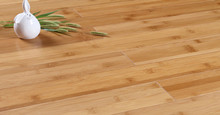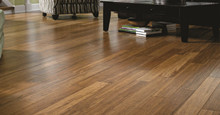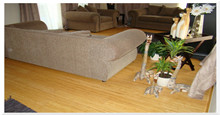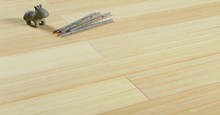Homeowners and builders are always looking for materials that can last the test of time and the elements when it comes to outdoor decking. Bamboo decking made from high-density strand weaving is one of the newest trends in this field. It offers better resistance to termites and corrosion, two of the most frequent hazards to outdoor constructions, in addition to being a sustainable substitute for conventional hardwoods. But why is this content so special in addressing these problems? Let‘s investigate.
How High-Density Bamboo Decking Works Scientifically
Strand Woven Bamboo: What Is It?
Bamboo that is strand braided is not like other bamboo. Strand woven bamboo is made by shredding bamboo stalks into fibers and then compressing them with an adhesive under intense heat and pressure, in contrast to typical bamboo flooring or decking, which employs bamboo strips. Compared to natural bamboo or even many hardwoods, the high-density product produced by this method is far denser and tougher.
Strand-woven bamboo‘s exceptional endurance is largely due to its great density, which also naturally protects it from environmental deterioration and pests.
1. Resistance to Termites: An Organic Protector
Termites are well known for consuming wood constructions, which over time can result in expensive damage. But bamboo decking made of high-density strand weaving offers a special protection against these tenacious bugs.
The Reason Termites Dislike It:
Compressed Density: Strand-woven bamboo is significantly denser than its natural equivalent due to the intense pressure used during the manufacturing process. The stiffness of high-density bamboo makes it difficult for termites to gnaw through, as they prefer softer timbers that are easier for them to do so.
Natural Chemicals: Termites are naturally repelled by a material called silica found in bamboo. Bamboo is an unappetizing food source for these bugs because silica is abrasive and distasteful to them.
Low Starch Content: The starches in natural wood fibers are what termites are attracted to. Bamboo‘s starch concentration is decreased throughout the strand weaving process, which further lessens termites‘ attraction to the material.
Essentially, termites simply do not like the environment that high-density strand-woven bamboo generates. Bamboo‘s natural qualities and strong, fibrous structure make it an effective barrier against termites, even though no material is completely impervious to them.
2. Anti-Corrosion: Resilient Against the Elements of Nature
The impacts of moisture, UV radiation, and temperature changes that can lead to material degradation over time are frequently mentioned when discussing corrosion in decking materials. High-density strand woven bamboo decking has many benefits over wood, which can bend, split, or decay in the weather.
The Strand Woven Bamboo‘s Anti-Corrosive Qualities:
Water Resistance: The high-density production technique improves bamboo‘s inherent ability to withstand moisture better than most hardwoods. Because bamboo fibers are so densely packed, moisture finds it difficult to penetrate the surface. Bamboo decking is therefore less likely to rot or sustain water damage.
UV Resistance: Even after extended exposure to sunshine, bamboo‘s inherent ability to withstand UV radiation helps it preserve its structural integrity and aesthetic appeal. To further improve this feature, some bamboo decking products are also coated with UV-resistant materials.
Stability During Temperature Changes: Bamboo with a high density strand weave is less prone to expanding and contracting as a result of temperature variations. Extreme heat or cold can cause traditional wood decking to bend or fracture, but bamboo‘s tight fiber structure makes it more resilient and less likely to sustain damage.
Comparing This Material to Others:
Hardwoods: Even though hardwoods like redwood and cedar are recognized for their inherent resistance to rot, termites can still harm them, and moisture and UV rays can eventually cause them to die. In many instances, the durability of high-density bamboo is superior.
Composite Decking: Although composite materials are frequently promoted as weather-resistant and low-maintenance, they are susceptible to fading or brittleness with time. Bamboo offers a natural substitute that doesn‘t look as plastic as certain composites.
3. Durability and Sustainability Come Together
Strand woven bamboo‘s sustainability is another feature that distinguishes it from other decking materials. One of the fastest-growing plants in the world, bamboo takes only three to five years to reach maturity, while hardwood trees take decades. For homeowners who wish to lessen their environmental impact, this makes it an eco-friendly option.
However, durability is not sacrificed for sustainability. The best of both worlds is provided by high-density strand woven bamboo, which is both environmentally friendly and resilient to the harshest environments.
In conclusion, a decking solution Built to Last High-density strand woven bamboo decking is a wise investment in longevity in addition to being a stunning addition to your outdoor area. It is the perfect option for homes looking for a durable, environmentally friendly decking solution because of its inherent resistance to termites and corrosion as well as its sustainable origins.
Selecting bamboo is not merely a fad; it is a sensible, long-lasting, and sustainable option that will safeguard your outdoor area for many years to come. Therefore, high-density strand woven bamboo is the solution if you‘re searching for a material that can withstand weather conditions while warding off termites and corrosion.



